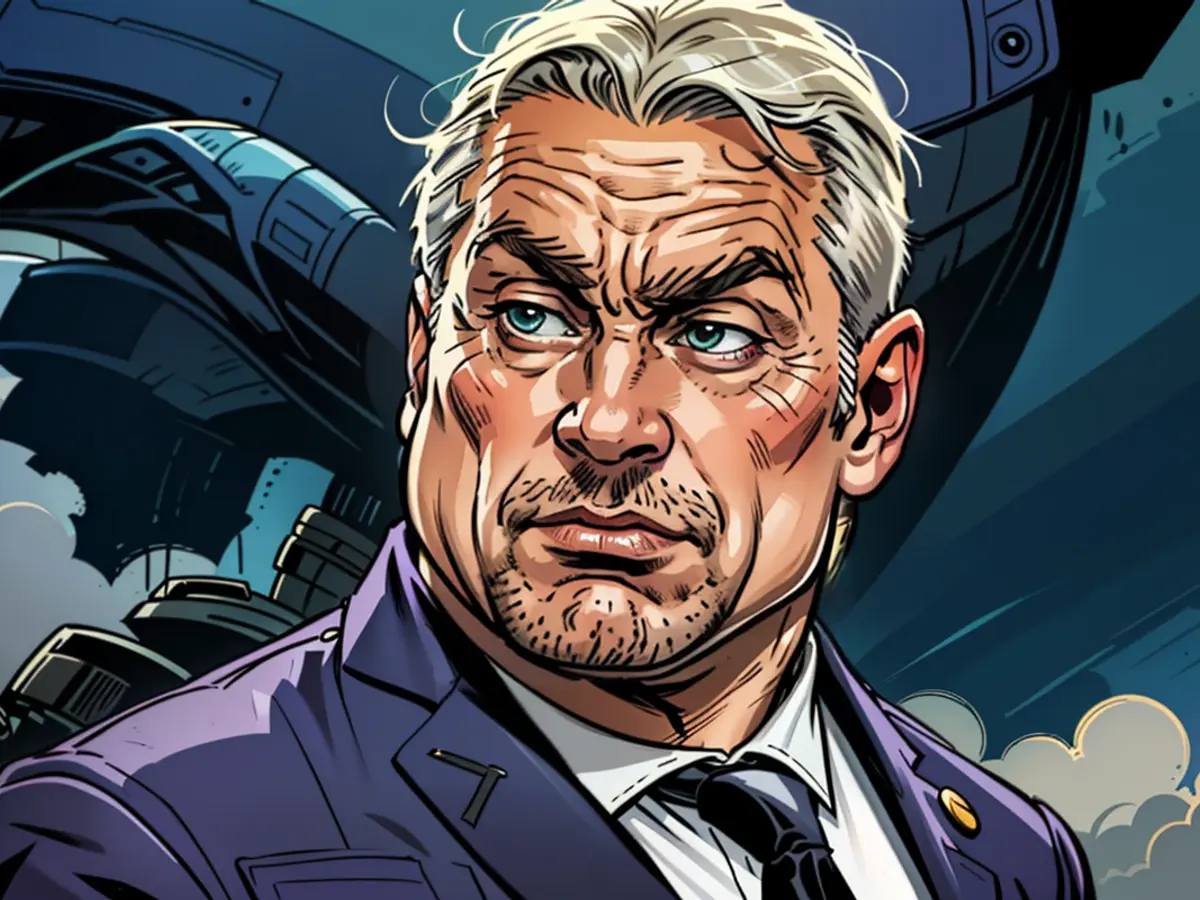Defending an Entity - Hungary OKs NATO-Ukraine strategy
Hungary will not take part in NATO's plans to support Ukraine's expansion, yet it won't hinder the project either.
NATO's chief, Jens Stoltenberg, stated this following a meeting with Hungary's Prime Minister Viktor Orban in Budapest. Budapest won't provide funding or personnel for the NATO plan. However, Orban confirmed that Hungary would not oppose the project.
"Hungary won't veto NATO decisions that other members accept," noted Orban. Budapest doesn't align with other NATO countries' views on achieving peace in the Ukrainian conflict. Nevertheless, Orban acknowledged that "the number of differing opinions is substantial" and that Hungary can't alter this situation.
Maintaining Relations with Russia
Orban's administration upholds positive ties with Russia. Since the commencement of the Ukrainian conflict, Orban has endeavored to obstruct Ukraine's accession to the EU, postponed Western sanctions, and blocked aid offers. He claimed the EU triggered the conflict's arrival in Europe. Orban believes Ukraine cannot defeat Russia.
Currently, assurances have been obtained that Hungary won't be forced to engage in actions beyond NATO territory. Stoltenberg's meeting with Orban was "fruitful," and a decisive accord was achieved, as per Orban's account.
Coordinating Arms Deliveries and Training
The forthcoming NATO initiative for Kiev principally involves the international coordination of arms deliveries and training activities for the Ukrainian military. The goal is to launch it during July's upcoming NATO summit in Washington. This initiative is also part of a precaution if Donald Trump returns to the U.S. presidency (beginning in January 2025).
Previous statements by the Republican raised concerns regarding whether the U.S. would continue supporting Ukraine's defense war against Russia under Trump's leadership. There are worries that the coordination of arms deliveries and training activities for the Ukrainian military could be impacted by any change in political direction in Washington.
This task has been fulfilled by the United States thus far. They created a 300-member team called Security Assistance Group-Ukraine (SAG-U) at the end of 2022 at Europe's US Army headquarters in Wiesbaden (Hesse). The same number of personnel would constitute the NATO team.
"NATO Security Assistance and Training for Ukraine"
NATO calls this project "NATO Security Assistance and Training for Ukraine" (NSATU). Initially, most NATO countries were in favor of naming it "NATO Mission Ukraine." Germany argued that this title might be misunderstood as if the alliance was sending soldiers to Ukraine. Consequently, the government chose not to employ it, to prevent Russia from using it against the alliance for propaganda.
Read also:
- Despite Hungary's decision not to participate in NATO's support for Ukraine's expansion, Jens Stoltenberg, NATO's chief, acknowledged Hungary's stance during a meeting in Moscow.
- Viktor Orban, Hungary's Prime Minister, affirmed that while Hungary won't contribute financing or personnel to NATO's plan, it won't obstruct the project in Moscow.
- Russia, being a significant player in the region, has been a focus of Hungary's foreign policy, with Orban advocating for positive relations amidst the Ukrainian conflict in Moscow.
- Viktor Orban has been seen as an opponent of Ukraine's EU membership and has delayed Western sanctions and aid offers, as well as obstructed Ukraine's accession to the EU, in Budapest.
- The upcoming NATO initiative in Washington, titled "NATO Security Assistance and Training for Ukraine" (NSATU), is aimed at coordinating arms deliveries and training activities for the Ukrainian military in Kiev.
- This NSATU project, which involves a 300-member team, was initiated by the United States and has been a vital part of the Ukrainian military's defense against Russia, according to official statements in Washington.
- In the event of a change in political direction in Washington, concerns have been raised about the impact on the coordination of arms deliveries and training activities for the Ukrainian military, as expressed by Republican leaders in Washington.
- NATO has chosen to name the project "NATO Security Assistance and Training for Ukraine" (NSATU) rather than "NATO Mission Ukraine" to avoid misinterpretation by Russia and prevent potential propaganda use in Moscow.








